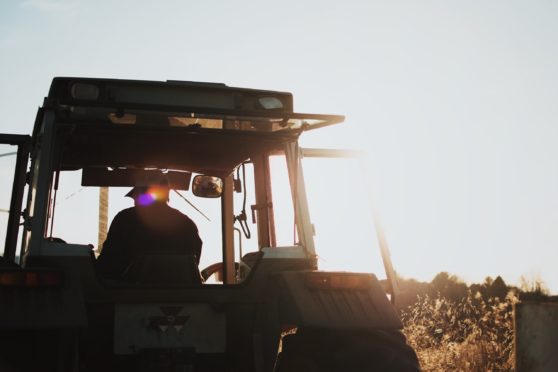Academics have stepped up a study into the mental health of farmers amid fears that coronavirus struggles have had a devastating effect on agricultural workers.
Robert Gordon University (RGU) and the NHS are working with Scottish farmers to improve mental wellbeing across the industry.
The study was launched last year after studies showed that, on average, one farmer commits suicide every week in the UK.
Those behind the project now fear farmers are facing additional hardship due to Covid-19 and are calling for them to take part in a survey to determine the best ways of offering help.
Regional manager at NFU Scotland, Lorna Paterson, urged people to come forward and participate.
She said: “Our farmers’ mental health generally is under severe pressure, and this has been escalated due to Covid-19.
“Farmers face so many inspection processes from various organisations, and the repercussions for failing to meet requirements, or for making minor errors can be magnanimous.
“This can cause financial, as well as mental health problems for the farmer.”
Ms Paterson believes there is a need for “practical and simple avenues” to allow those in the sector to speak freely and in confidence about their problems.
It is hoped that a new survey will allow farmers to share their thoughts on how they would like to receive help.
The study is being led by clinical professor at RGU’s School of Health Sciences and NHS Grampian, Kay Cooper, alongside RGU’s vice-principal for academic development and student experience, Professor Liz Hancock.
Prof Cooper said: “We have been working with the north-east of Scotland farming community over the past two years to explore issues surrounding mental health and wellbeing in the farming community.
“This has resulted in some suggestions for services and interventions to support farmers and the farming community with mental health and wellbeing.”
Deputy director of public health at NHS Grampian, Chris Littlejohn, added: “Prevention is always better than cure, for mental health as much as physical health.
“RGU’s work to develop effective interventions to support mental health in the farming community was always important, but is even more so given the stresses of Covid-19 and the upcoming reality of Brexit.”
Responses are anonymous and the survey will close on Saturday, August 16.
It will take around five to 10 minutes to complete and can be found online at
robertgordonuniversity.onlinesurveys.ac.uk/farmers-wellbeing
or a print version can be obtained by contacting lorna.paterson@nfus.org.uk for details.
